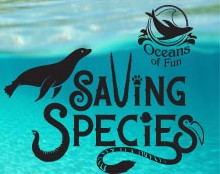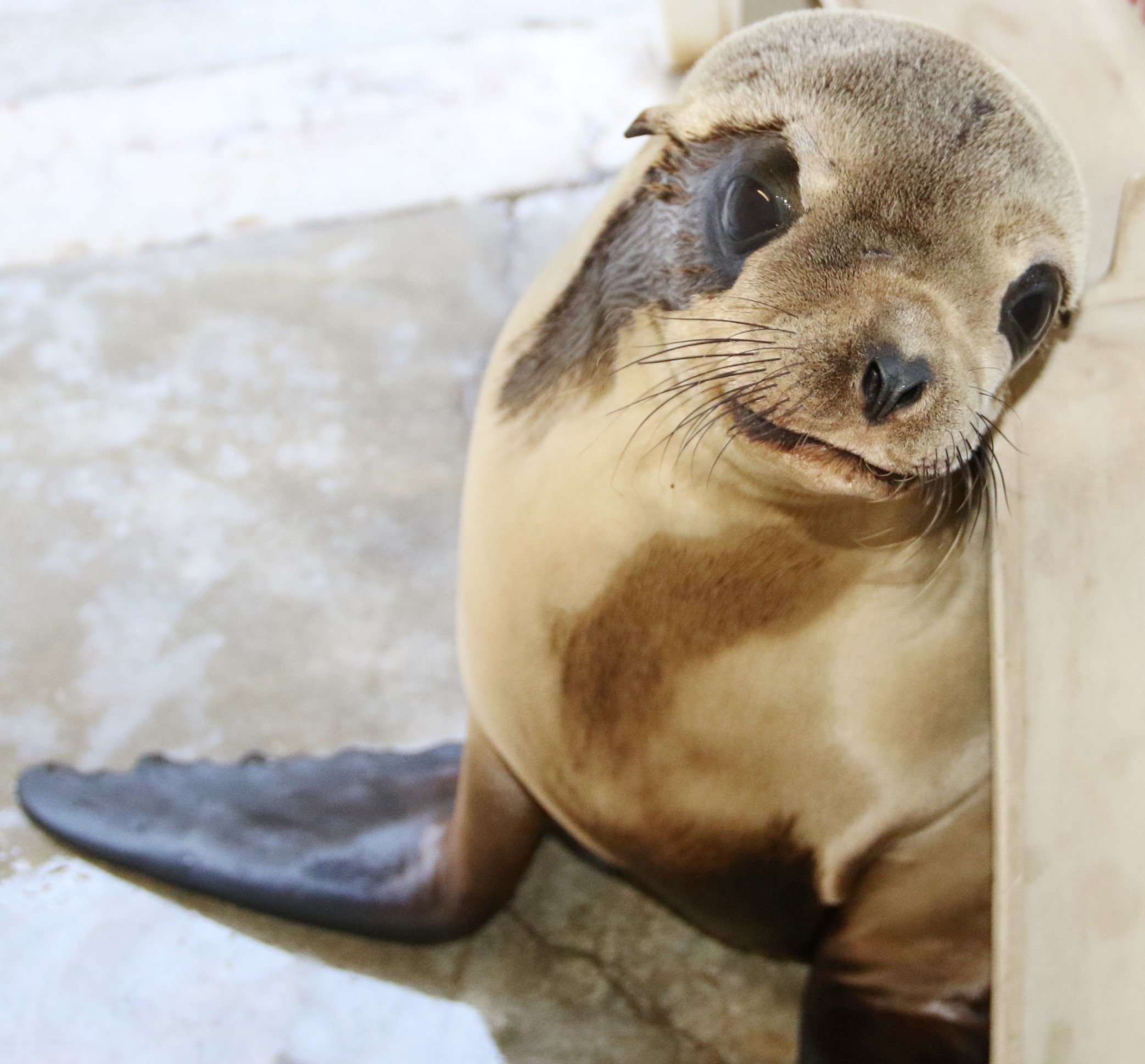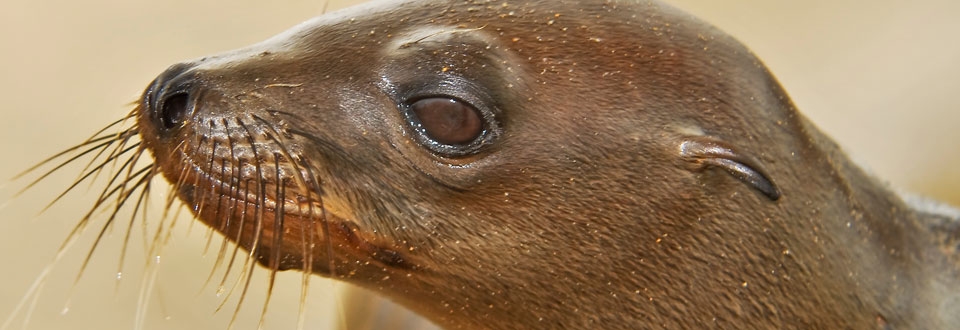
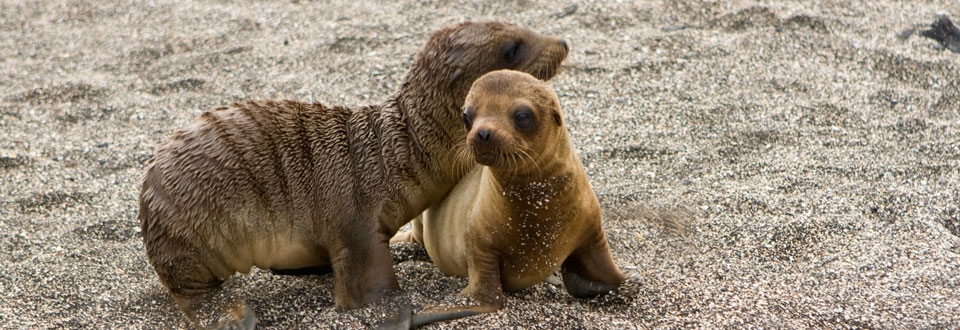
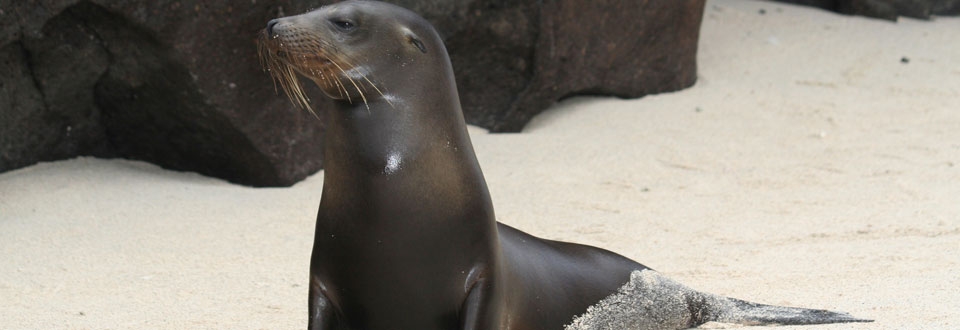
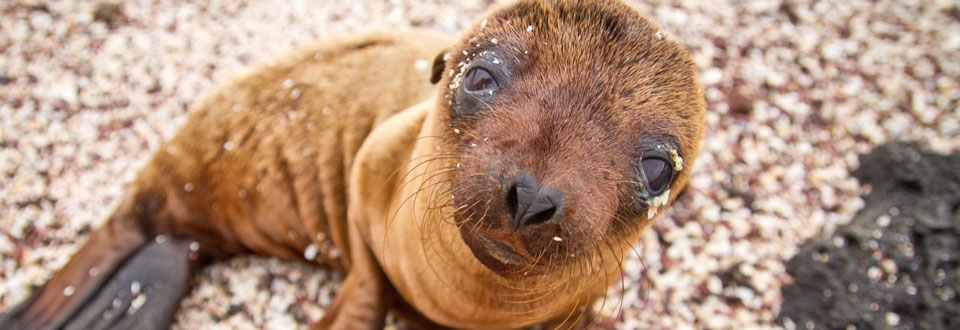
Zoos Hold the Key to Species Survival
 Zoological institutions that are accredited by organizations such as the Alliance of Marine Mammal Parks and Aquariums (AMMPA) and the Association of Zoos and Aquariums (AZA), like Ocean Connections, the Milwaukee County Zoo, and ZooAmerica get inspected to ensure that species in human care receive topnotch healthcare and an exceptional environment to thrive in. This goes for all species great and small from Naked Mole Rats to Orcas from Monarch butterflies to Elephants, accredited facilities are the face of conservation. These facilities in partnership with other conservation-based organizations, like the U.S. Fish and Wildlife Service, play a pivotal role in the protection and preservation of threatened or endangered species. Without accredited zoos and aquariums, the extinction of infinite species is inevitable.
Zoological institutions that are accredited by organizations such as the Alliance of Marine Mammal Parks and Aquariums (AMMPA) and the Association of Zoos and Aquariums (AZA), like Ocean Connections, the Milwaukee County Zoo, and ZooAmerica get inspected to ensure that species in human care receive topnotch healthcare and an exceptional environment to thrive in. This goes for all species great and small from Naked Mole Rats to Orcas from Monarch butterflies to Elephants, accredited facilities are the face of conservation. These facilities in partnership with other conservation-based organizations, like the U.S. Fish and Wildlife Service, play a pivotal role in the protection and preservation of threatened or endangered species. Without accredited zoos and aquariums, the extinction of infinite species is inevitable.
Ocean Connections is just one of the many accredited facilities across the globe that is dedicated to ensuring species survival. We are devoted to a variety of conservation efforts from active participation in saving species to financial support. Ocean Connections has contributed to rescuing stranded seals as well as California sea lions involved in the Unusual Mortality Event, researching pinnipeds in Punta San Juan to ensure survivability, and continued support of Walrus protection projects. Conservation does not end with us.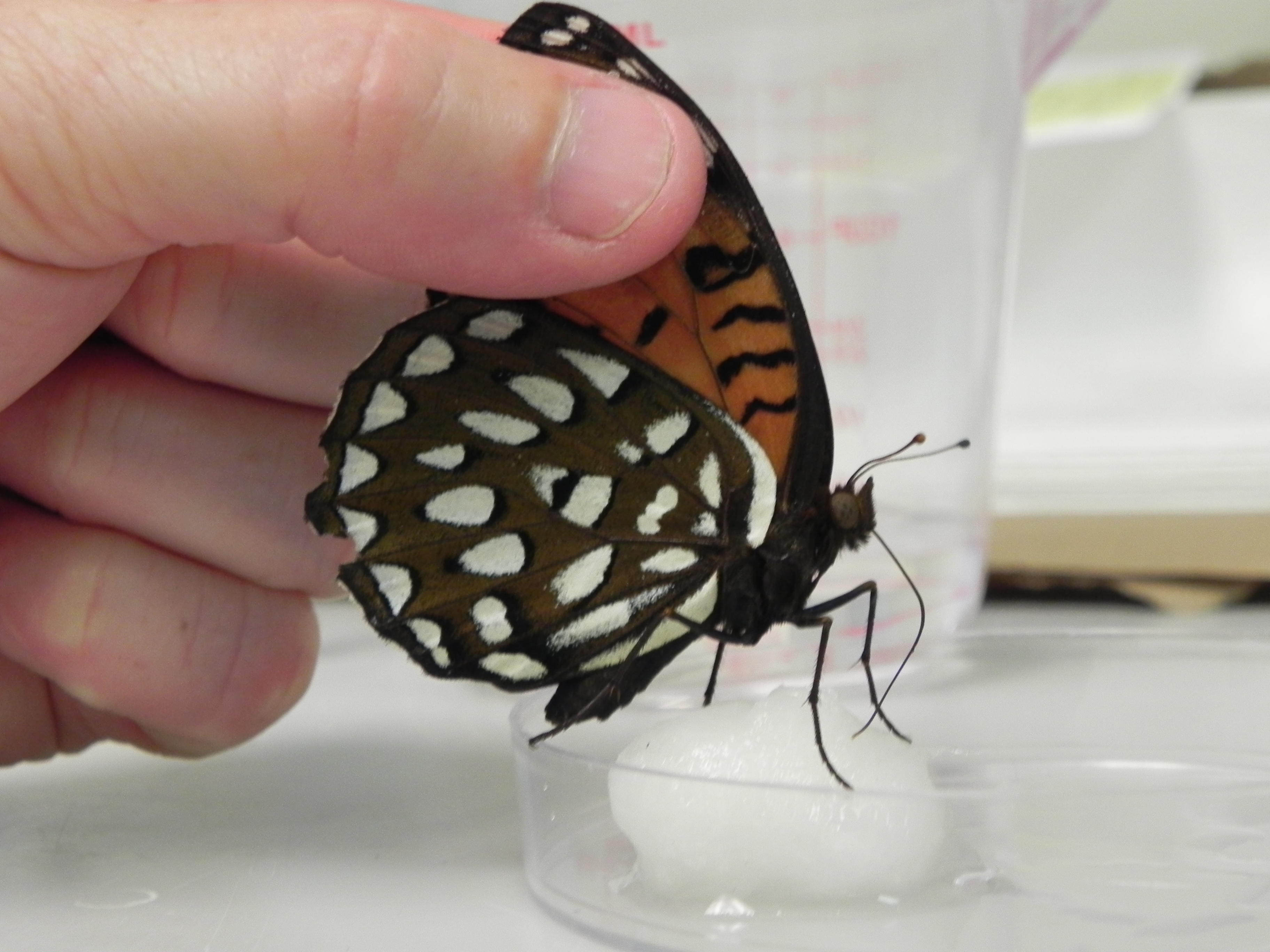 It extends outward to a network of institutions we are in partnership with that have committed themselves to various conservation projects. Our Ocean Connections Wisconsin location has been partnered with the Milwaukee County Zoo since 1991. Home to over 3,000 animals, the Milwaukee County Zoo has been promoting an appreciation for all species and supporting the conservation of their diverse habitats since its inception in 1892. From Bonobos to Humboldt penguins to many other critically endangered animals, their efforts have assisted with increasing wild populations and protecting the natural ranges of various species. In 2009, we continued to expand as we were welcomed into a collaboration with Hersheypark and ZooAmerica in Hershey, Pennsylvania. Milton S. Hershey, founder of Hershey’s Chocolate, took particular interest in environmental issues and established the first recycling center in Hershey, Pennsylvania long before recycling became a common practice. They minimize oil and energy consumption, conserve 3.7 million gallons of water, and avoid over 6,000 pounds of air pollutants every year. Located within Hersheypark is ZooAmerica which has a plethora of conservation initiatives of its own. Dedicated to the preservation of North American wildlife, ZooAmerica has strived to promote public awareness, respect, and appreciation for the natural world while inspiring and motivating guests to take personal resposibility for the health of the planet. ZooAmerica actively participates in breeding and reintroduction programs geared toward protecting endangered species from extinction. Encroachment and loss of habitat are affecting many species including
It extends outward to a network of institutions we are in partnership with that have committed themselves to various conservation projects. Our Ocean Connections Wisconsin location has been partnered with the Milwaukee County Zoo since 1991. Home to over 3,000 animals, the Milwaukee County Zoo has been promoting an appreciation for all species and supporting the conservation of their diverse habitats since its inception in 1892. From Bonobos to Humboldt penguins to many other critically endangered animals, their efforts have assisted with increasing wild populations and protecting the natural ranges of various species. In 2009, we continued to expand as we were welcomed into a collaboration with Hersheypark and ZooAmerica in Hershey, Pennsylvania. Milton S. Hershey, founder of Hershey’s Chocolate, took particular interest in environmental issues and established the first recycling center in Hershey, Pennsylvania long before recycling became a common practice. They minimize oil and energy consumption, conserve 3.7 million gallons of water, and avoid over 6,000 pounds of air pollutants every year. Located within Hersheypark is ZooAmerica which has a plethora of conservation initiatives of its own. Dedicated to the preservation of North American wildlife, ZooAmerica has strived to promote public awareness, respect, and appreciation for the natural world while inspiring and motivating guests to take personal resposibility for the health of the planet. ZooAmerica actively participates in breeding and reintroduction programs geared toward protecting endangered species from extinction. Encroachment and loss of habitat are affecting many species including 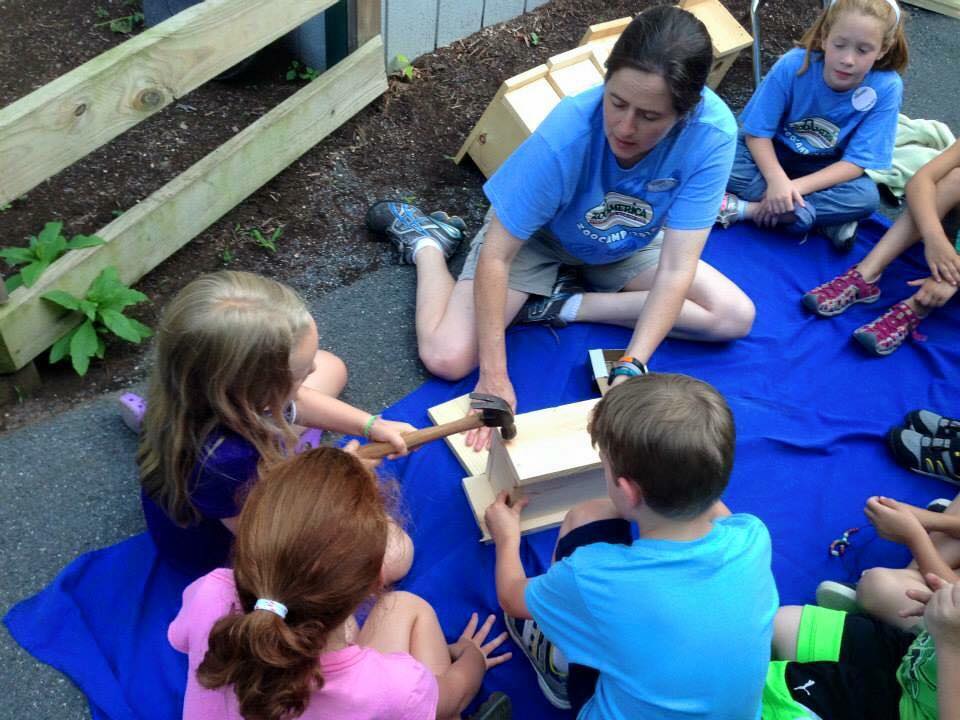 the majestic Peregrine falcon and the Regal Fritillary butterfly but by having these reintroduction programs we are restoring populations in their historic ranges from which they have almost completely disappeared. ZooAmerica also participates in Species Survival Plan initiatives which are designed to maintain a healthy, genetically diverse, and demographically stable population for the long-term future. This is coupled with collaboration with other accredited institutions and field project research that help us learn how to better serve species that are struggling. One way we they are doing so is building nest boxes for various bird species including the Barn Owl, American Kestrel, Prothonotary Warbler, and Bluebird. By creating, monitoring, and studying these populations, these birds are not only provided with shelter for their nests but also provide the opportunity for research. All of the information collected by ZooAmerica is helping to provide more data on the challenges these birds are facing and how we can best ensure their survival for future generations. Through our collaboration in conjuncture with other accredited zoological institutions, we have been saving species worldwide by inspiring conservation awareness. Many species are struggling out in the wild and accredited facilities have made large strides to protect these animals but we cannot do it alone. We need your help. For it is only with your continued support that accredited zoos and aquariums can ensure these animals' survival for future generations.
the majestic Peregrine falcon and the Regal Fritillary butterfly but by having these reintroduction programs we are restoring populations in their historic ranges from which they have almost completely disappeared. ZooAmerica also participates in Species Survival Plan initiatives which are designed to maintain a healthy, genetically diverse, and demographically stable population for the long-term future. This is coupled with collaboration with other accredited institutions and field project research that help us learn how to better serve species that are struggling. One way we they are doing so is building nest boxes for various bird species including the Barn Owl, American Kestrel, Prothonotary Warbler, and Bluebird. By creating, monitoring, and studying these populations, these birds are not only provided with shelter for their nests but also provide the opportunity for research. All of the information collected by ZooAmerica is helping to provide more data on the challenges these birds are facing and how we can best ensure their survival for future generations. Through our collaboration in conjuncture with other accredited zoological institutions, we have been saving species worldwide by inspiring conservation awareness. Many species are struggling out in the wild and accredited facilities have made large strides to protect these animals but we cannot do it alone. We need your help. For it is only with your continued support that accredited zoos and aquariums can ensure these animals' survival for future generations.
What many people fail to realize is that zoological institutions want animal populations to thrive in natural habitats. Unfortunately the reality of it is that the wild is a dangerous place to be. 96 elephants are killed daily for their ivory tusks. Every eight hours, a rhino is killed for their horn. Both of these animals now require armed protection from poachers. Marine life of all types from cetaceans (whales/dolphins) to turtles to seabirds are washing  ashore with stomachs full of plastic. Due to this and overfishing, recent studies have shown that Southern Resident orcas are starving to death as their salmon becomes more and more scarce. As many as 73 million sharks are losing their fins every year and being tossed back into the ocean to die to meet the demand of the shark-finning industry. Since January of 2015, over 6,000 California sea lions have been found emaciated and stranded on beaches because of overfishing and global climate change drastically affecting their environment. 4,500 acres of forest are cleared every single hour to make way for housing and farming. This is the equivalent to over 3,400 football fields and is endangering some of earth’s most beloved and rarest animals including Orangutans, tigers, okapis, snow leopards, and more. Vaquitas weren’t
ashore with stomachs full of plastic. Due to this and overfishing, recent studies have shown that Southern Resident orcas are starving to death as their salmon becomes more and more scarce. As many as 73 million sharks are losing their fins every year and being tossed back into the ocean to die to meet the demand of the shark-finning industry. Since January of 2015, over 6,000 California sea lions have been found emaciated and stranded on beaches because of overfishing and global climate change drastically affecting their environment. 4,500 acres of forest are cleared every single hour to make way for housing and farming. This is the equivalent to over 3,400 football fields and is endangering some of earth’s most beloved and rarest animals including Orangutans, tigers, okapis, snow leopards, and more. Vaquitas weren’t  discovered until 1958 and are the smallest and rarest cetacean. 59 years have passed since then and there are less than 30 individuals left in the wild since illegal fishing practices have this population on the brink of extinction. Human-caused problems are creating an innumerable amount of obstacles for animals in the wild and we are obligated as shared inhabitants of this planet to take action before it’s too late.
discovered until 1958 and are the smallest and rarest cetacean. 59 years have passed since then and there are less than 30 individuals left in the wild since illegal fishing practices have this population on the brink of extinction. Human-caused problems are creating an innumerable amount of obstacles for animals in the wild and we are obligated as shared inhabitants of this planet to take action before it’s too late.
 Extinction is forever and once a species truly disappears it can never come back. However, we can all contribute to the success of species and one of the easiest ways to do so is by supporting accredited zoos and aquariums. When you support zoological institutions you support the survival of species. You support the reintroduction of species thanks to zoo-based breeding programs like the ‘Alalā (Hawaiian crow), Arabian Oryx, Tigers, Addax antelope, Rodrigues fruit bats, and so many more that have been critically endangered or even extinct in the wild. You support rescued animals – like Ocean Connections’s harbor seal, Mango - that would not have survived out in the wild. Animals in human care are living double or triple the lifespan of their wild counterpart thanks to the phenomenal care we are able to provide them. By supporting these organizations, you support research that helps to better understand these animals’ needs. This research helps ensure that even thriving wild populations can continue to survive and assists in conserving those that are in trouble. It is our responsibility to work together to ensure that this single planet we all share is populated by these magnificent creatures for generations come.
Extinction is forever and once a species truly disappears it can never come back. However, we can all contribute to the success of species and one of the easiest ways to do so is by supporting accredited zoos and aquariums. When you support zoological institutions you support the survival of species. You support the reintroduction of species thanks to zoo-based breeding programs like the ‘Alalā (Hawaiian crow), Arabian Oryx, Tigers, Addax antelope, Rodrigues fruit bats, and so many more that have been critically endangered or even extinct in the wild. You support rescued animals – like Ocean Connections’s harbor seal, Mango - that would not have survived out in the wild. Animals in human care are living double or triple the lifespan of their wild counterpart thanks to the phenomenal care we are able to provide them. By supporting these organizations, you support research that helps to better understand these animals’ needs. This research helps ensure that even thriving wild populations can continue to survive and assists in conserving those that are in trouble. It is our responsibility to work together to ensure that this single planet we all share is populated by these magnificent creatures for generations come.
Take action now! The following links provide the opportunity for you to start combating extinction:
 Read more about the conservation projects Ocean Connections is involved with here or donate now!
Read more about the conservation projects Ocean Connections is involved with here or donate now!
Take a stand against the ivory trade by signing the Milwaukee County Zoo’s petition to Ban Ivory Trade in Wisconsin!
Read more about elephant conservation projects by visiting 96 Elephants, International Elephant Foundation, and Elephants for Africa.
Support anti-poaching rangers!
Check out these Zoo Success Stories:
- Arabian Oryx
- Bali Starling
- Black-Footed Ferret
- Blue Iguana
-
Butterflies

- California Condor
- Gopher Tortoise
- Gorillas
- Indigo Snake
- Painted Dog
- Puerto Rican Crested Toad
- Red Wolf
- Rodrigues Fruit Bats
- Siamese Crocodile
- Tigers
Sign the petition to Ban Shark Fin Trading!
Download the free Seafood Watch App to support legal, sustainable fishing practices and the free Palm Oil Guide App to support sustainable palm oil farming to combat deforestation.
View Snow Leopard and Great Ape conservation projects.
Discover marine debris projects and activities in your region.
Photos courtesy of: Ocean Connections, Milwaukee County Zoo, NOAA, Oceana, and ZooAmerica.




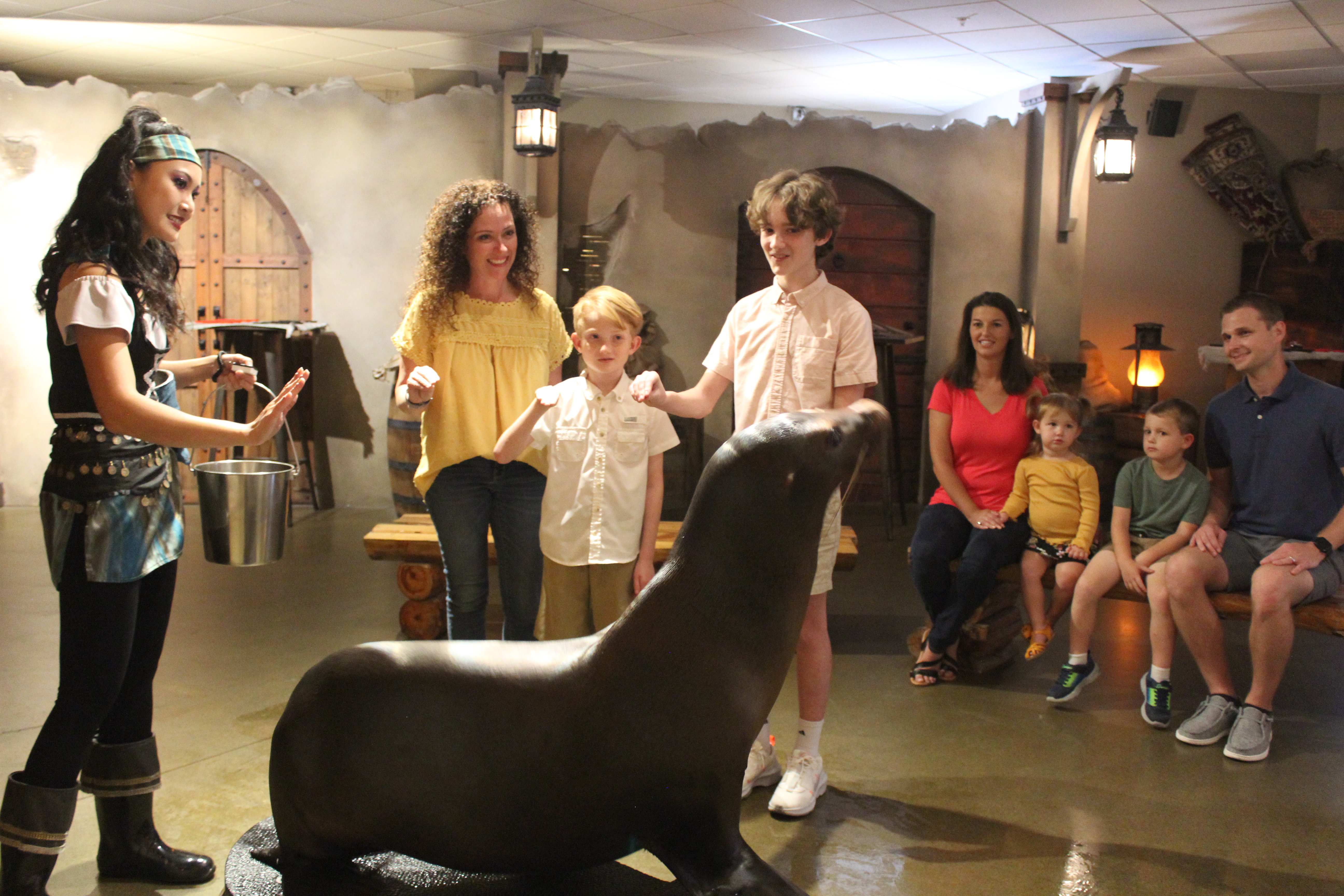 Animal Encounter
Animal Encounter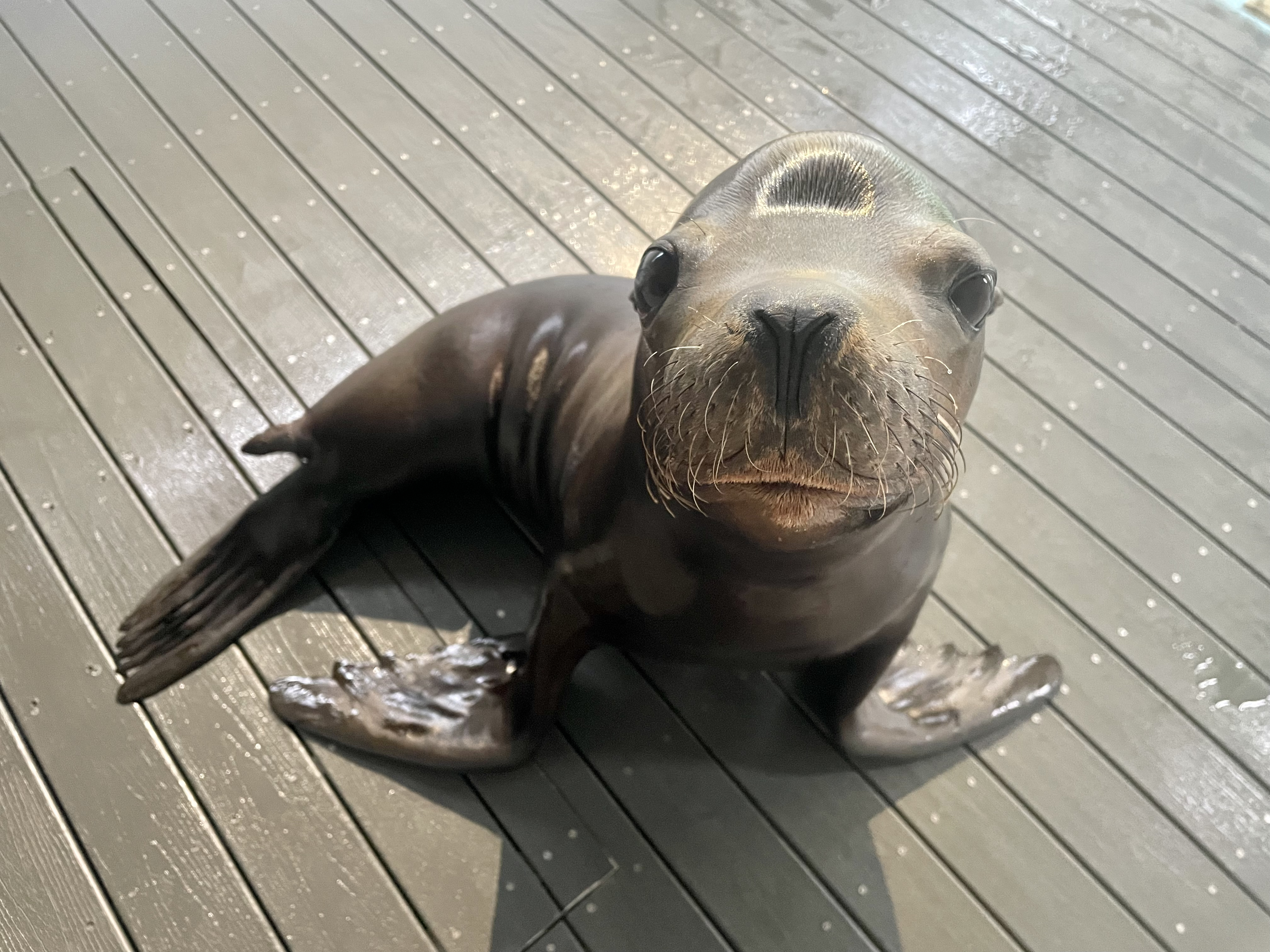 Our Locations
Our Locations
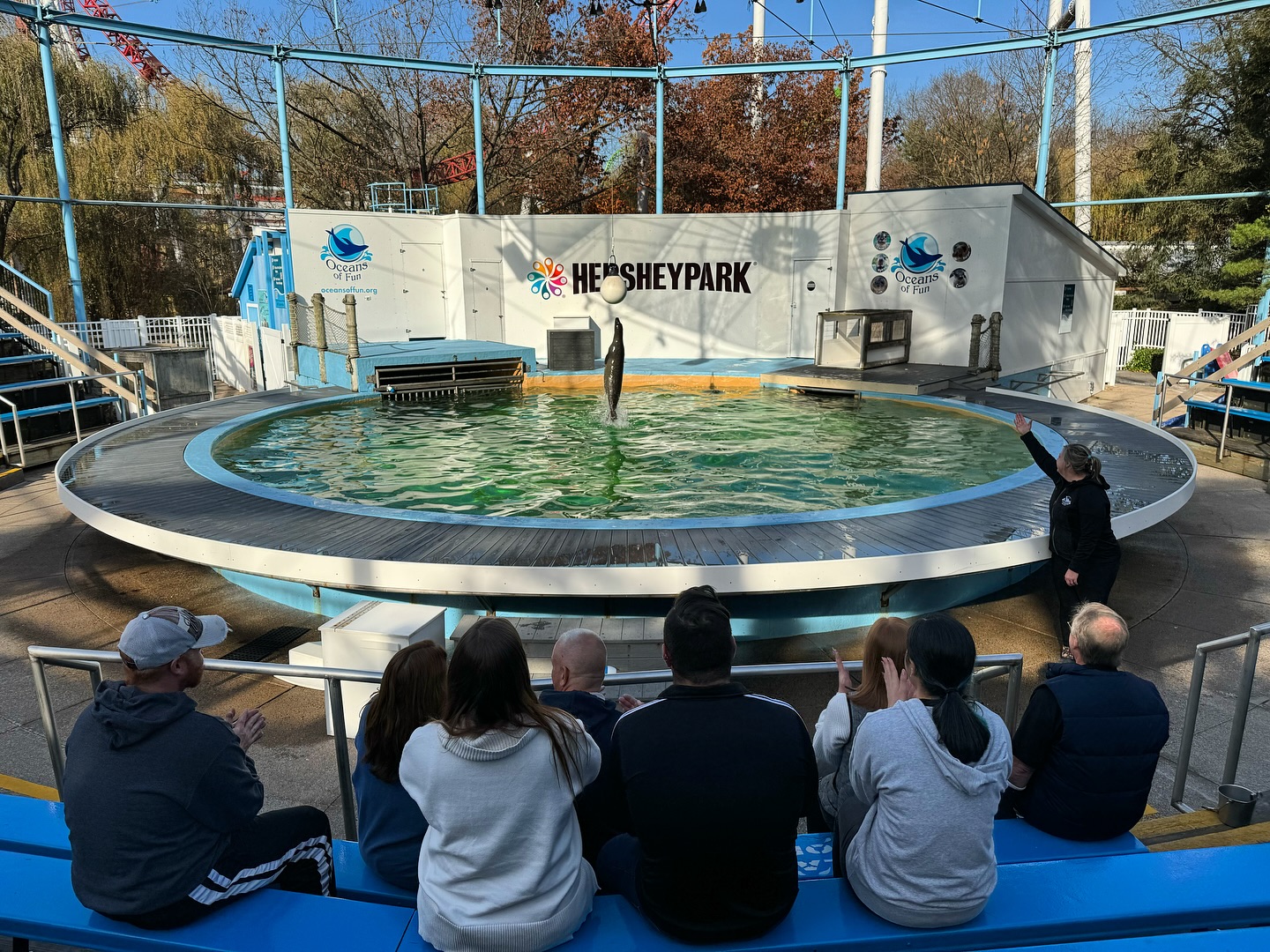 Family Fun
Family Fun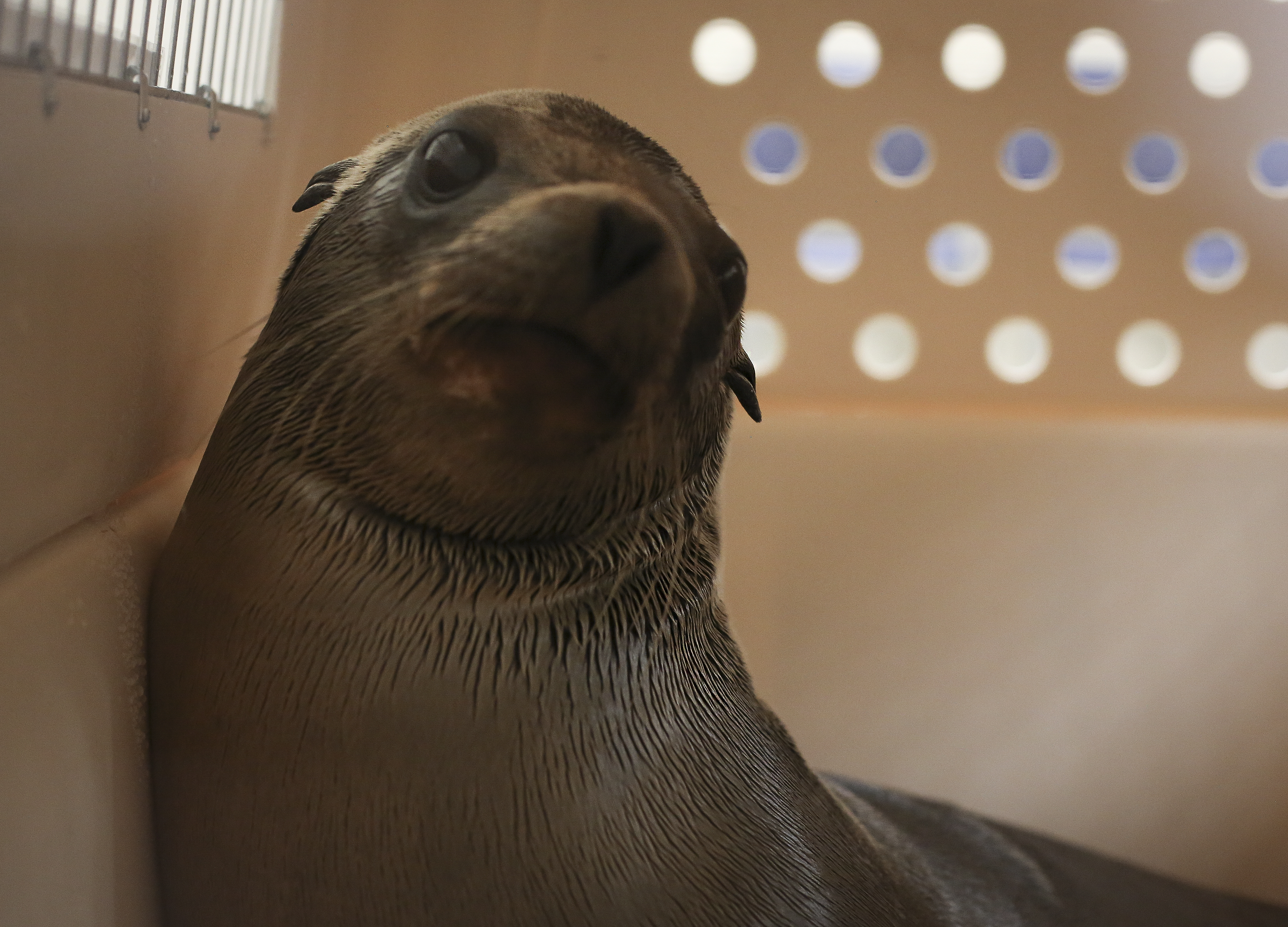
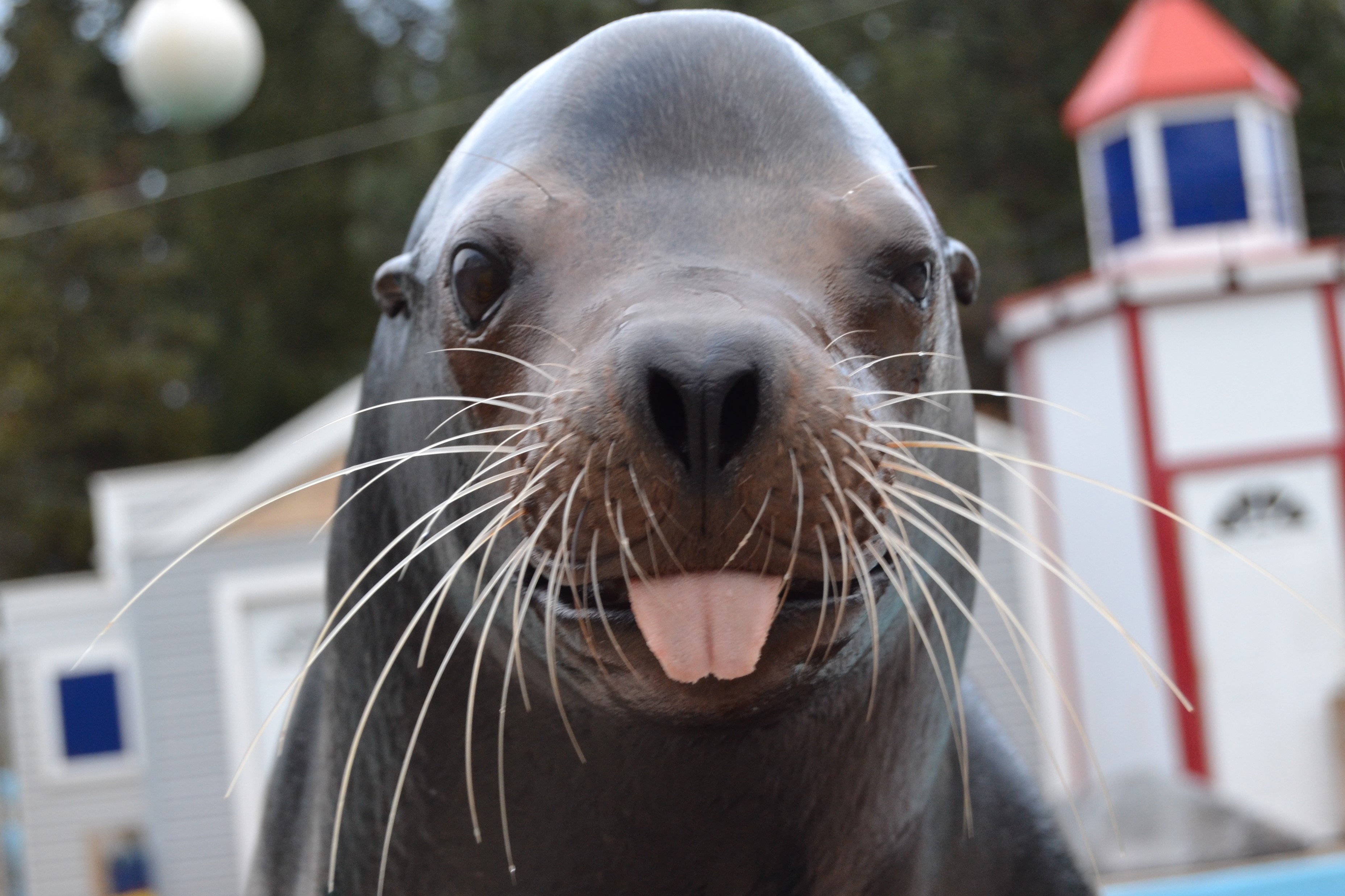
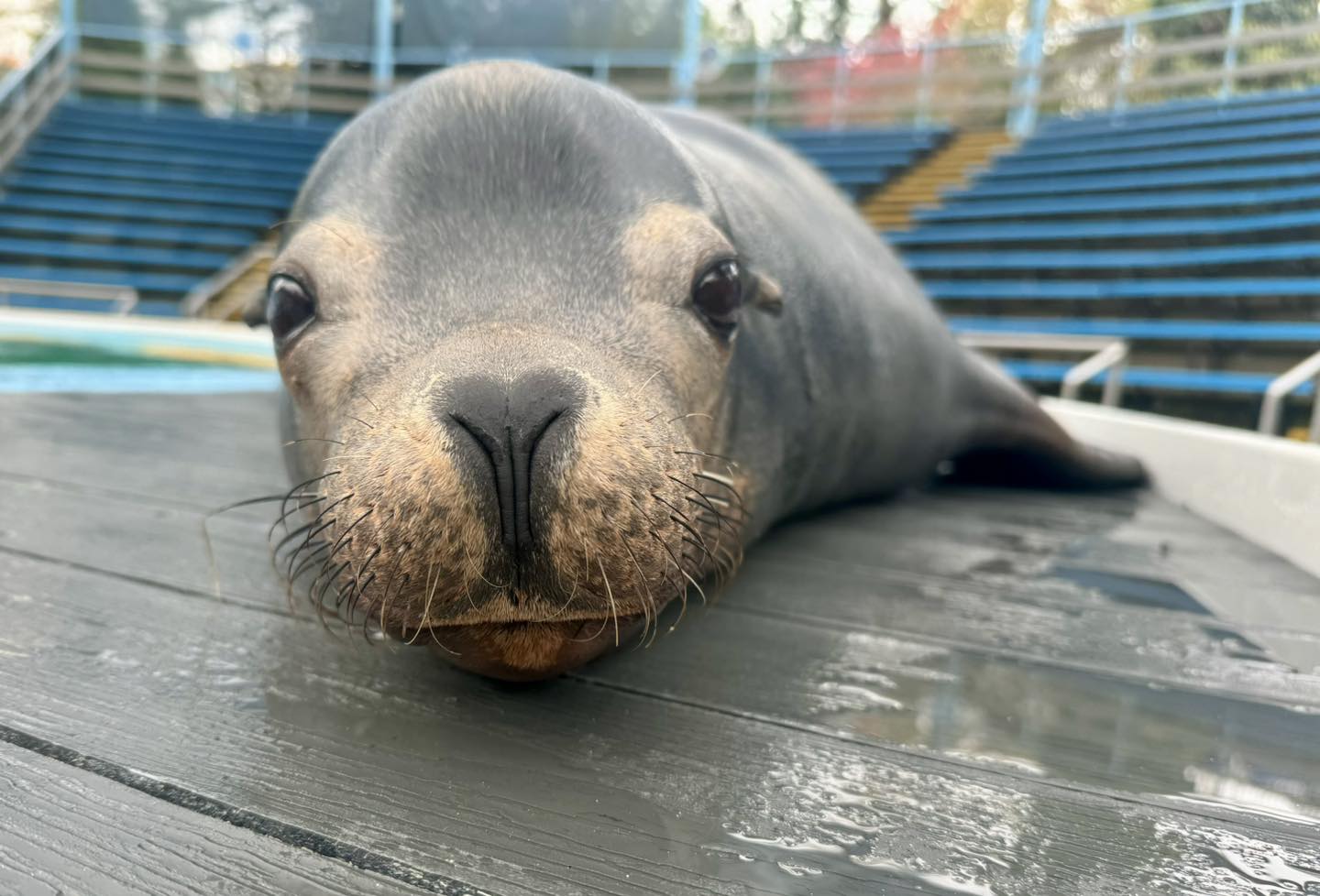 Meet Ripley!
Meet Ripley!
